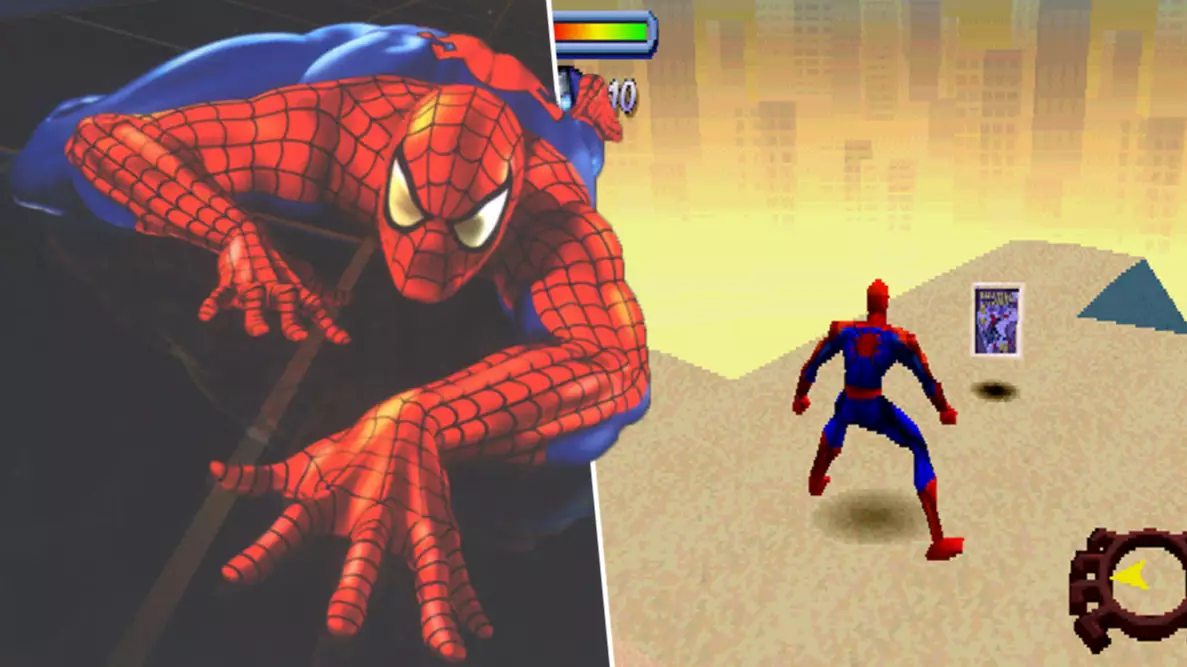
Words: Stacey Henley
Superhero games are a lot like superhero movies: they've been around for ages, but they haven't been good until very recently. Many people would credit 2008's Iron Man and the birth of the MCU with the creation of the modern superhero movie, but I'd argue it goes back to X-Men in the year 2000. Likewise, when people talk about the first good superhero game, they'd likely go back just one year less to Batman: Arkham Asylum in 2009; but I'd argue the true nucleus of superhero gaming also came in 2000, with Spider-Man on the original PlayStation.
Its influence can even be found in the Arkham series itself. Though a great series, like so many open-world games, Arkham relies on understanding and repurposing the mechanics of games which came before. Detective Vision is little more than a Batman riff on Assassin's Creed's Eagle Vision, while the hand-to-hand combat has in turn been aped in everything from Shadow Of Mordor to Mad Max; you can even find traces of it in Ghost Of Tsushima.
Advert
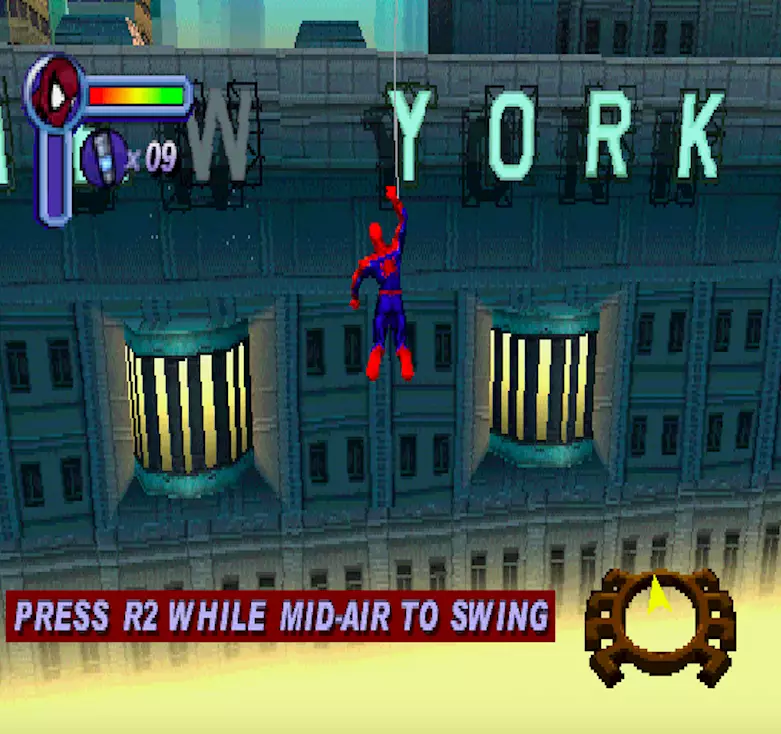
I'm not here to dispute the quality of the Arkham games - I'd even defend Origins and Knight - but gameplay wise it's just good combat wrapped up in Batman's clothes and other people's ideas. While certain aspects of the series have been analysed to death, one thing that's rarely mentioned is how much it - and most other superhero games - borrowed from 2000's Spider-Man.
Spider-Man - which was developed by Neversoft for the PS1 before being ported to the SEGA Dreamcast (courtesy of Treyarch) and Nintendo 64 (by Edge of Reality) - was the first superhero game to let you explore a city with relative freedom. Obviously, as a PS1 game the open world is chopped up into very small pieces of a handful of buildings each, but the core experience is still there. Going too far gets you turned back around, and landing on a specific building begins a cutscene and wrestles control away from you - but it still offered you the chance to actually be Spider-Man, swinging with ease around New York City.
Advert
Though restricted by technology and a cheesy attempt to explain the fogging in the narrative, Spider-Man introduced the free-roam superhero idea we see in later games. Arkham Asylum and the terrible Iron Man/Thor/Captain America tie-ins similarly split their free-roam maps up into smaller segments, before Arkham City and Marvel's Spider-Man cut you loose in a huge, sprawling cityscape. You get the feeling that swinging across New York City freely was always the Spider-Man of 2000's intention, and it deserves credit for laying the groundwork for the 2018 version, via a detour through Arkham.
You could argue that 1999's Superman 64 tried to go open world, but the game was pointlessly restricted by forcing Superman to fly through a series of rings. Yes, like Spider-Man it was held back by technical limitations, but it surrenders to these limitations all too easily, In contrast, 2000's Spider-Man MacGyvers a way around them. (Which isn't to say the devs aren't up for a modern remake, as they most certainly are.)
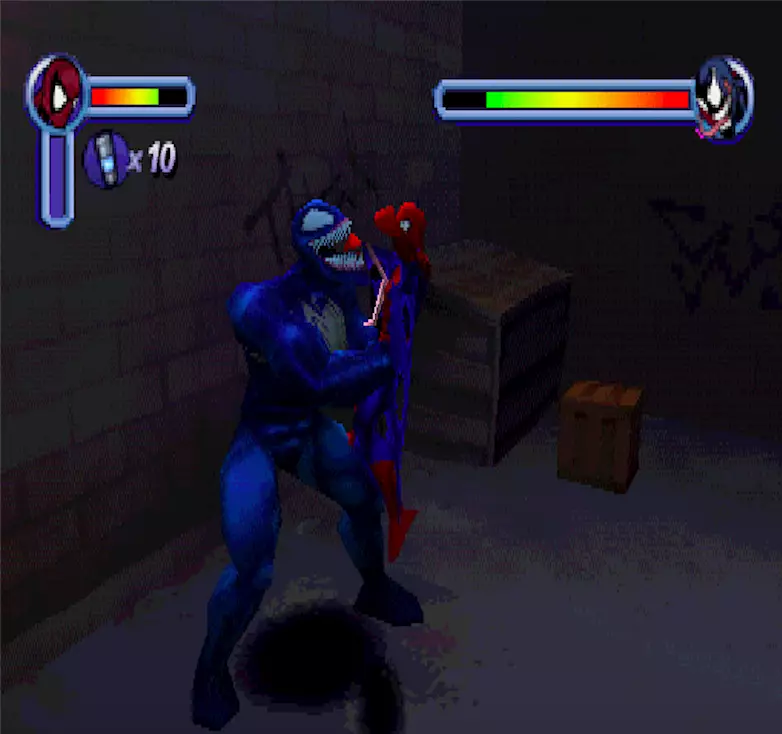
It's ironic also that 2018's Marvel's Spider-Man was criticised by some for ripping off Arkham's fluid fighting style. It's true that Arkham did introduce the rapid hand-to-hand fighting with counters and combos that many games, including 2018's Spider-Man, appropriated in some way. But the mix of this approach with superhero gadgetry goes back even further to - you guessed it - Spider-Man on the PS1. You could launch web balls while fighting, wrap foes up in your webs, or even create an igloo of web slime to protect yourself then explode it over your enemies, a technique which was unfortunately not kept in the 2018 version.
Advert
There are other things 2000's Spider-Man introduced which superhero movies made in its wake have copied to varying degrees. These include keeping several voice actors from the animated series, a huge cast including tons of boss battles against A-list villains, and a grounded, more personal story which sees Spider-Man being framed as a villain.
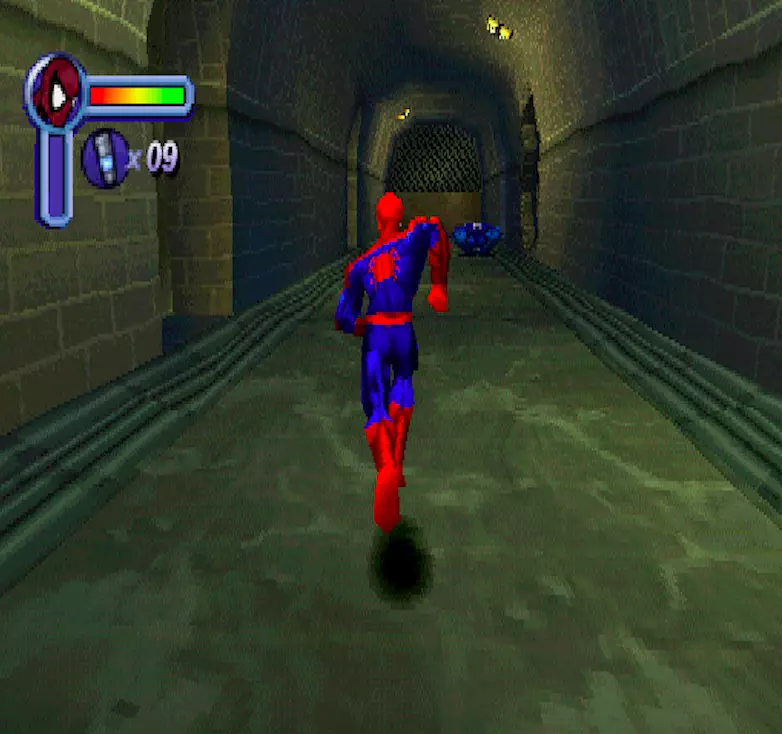
We could keep going, comparing Spider-Man to the superhero games which came after, but to continue to do so would border on insulting. The fact it influenced the much stronger superhero games which came after is a testament to its quality and is an important part of its legacy, but it is not only worth remembering as a skeleton for stronger games to build off. Even if games which came afterwards had ignored it, Spider-Man on PS1 is still a game deserving of celebration on its 20th anniversary.
Made in the same engine as Tony Hawk's Pro Skater, Spidey's movement in the game was as smooth as anything from that era, while the characters were bursting with personality and quips. The web swinging, such an important element in 'being' the character, wasn't bettered until 2018, and there was a huge range of boss battles, including chase sequences, close-combat face offs and set pieces clearly inspired by the platformer popularity of the era.
Advert
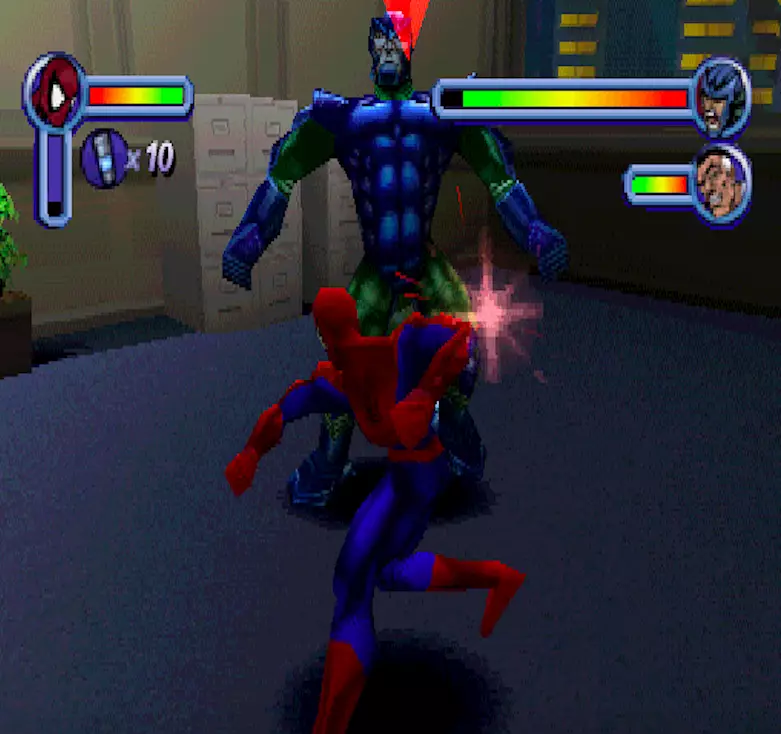
The game didn't restrict itself to just the classic NYC skylines either, offering playable levels inside several building interiors, the subway and the sewers, a range even its 2018's successor can't match. Making great use of Spidey's webbed abilities, it felt every inch a Spider-Man game, made for Spider-Man fans, even featuring alternate skins, an unlockable comic book, and narration from the late, great Stan Lee.
Twenty years on, if you can still get your hands on an old PS1, Spider-Man still holds up. It feels dwarfed in some ways by Arkham and 2018's Marvel's Spider-Man, but in other ways it is the giant whose shoulders those great games stood on. It laid out a blueprint for superhero games: a guide which many ignored, but even those that did follow often fell desperately short of. As the game turns 20, the greatest compliment you can pay Spider-Man is the one from its very own theme tune: it lets you do whatever a spider can.
Follow the author on Twitter at @FiveTacey, and GAMINGbible at @gamingbible. Look out for a lot more about all things OG PlayStation in late September, when we mark the 25th anniversary of the console arriving in the UK.
Featured Image Credit: ActivisionTopics: Feature, N64, Dreamcast, PlayStation, Opinion, Spider-Man, Retro Games